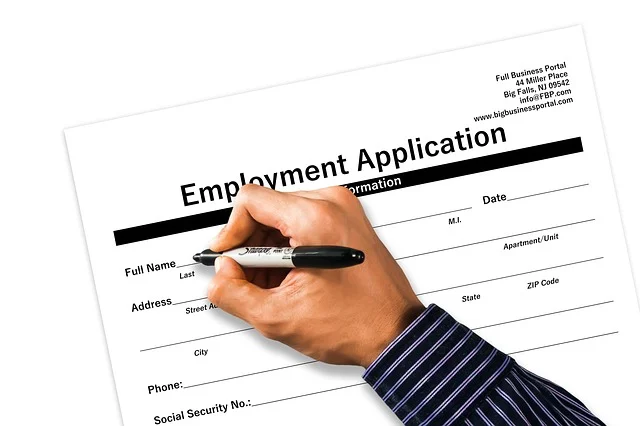In a world where time is of the essence, these tried-and-true strategies will empower you not just to seek employment but to secure it swiftly. From crafting a compelling resume that speaks volumes about your skills to navigating the intricate web of networking, every factor improves the acceleration of your job search.
However, in the following article, we will explore the power of informational interviews, internships, and professional organizations.
So, let’s not waste further time and jump to the next section!
Why Is Job Search Important?
Conducting a job search is crucial for various reasons. Firstly, it is the gateway to financial stability, allowing individuals to meet their daily needs and pursue personal goals. Jobs provide a means to support ourselves and our families, ensuring a secure and comfortable life.
Also, job search is a dynamic process that fosters adaptability and resilience. It challenges you to navigate the ever-evolving landscape of industries, pushing you out of your comfort zone and encouraging continuous learning. The skills acquired during a job search – from crafting a compelling resume to mastering the art of interviews – are invaluable assets that extend beyond securing employment.
In the broader context, a job search is a societal building block. It contributes to economic growth by matching skilled individuals with roles that optimize their potential. A thriving job market enhances overall job satisfaction, employee productivity, and, consequently, the collective well-being of a community.
Strategies to Follow When Doing a Job Search
Securing a job is not merely a stroke of luck; it’s a deliberate process that demands strategic planning and execution. Effective strategies can significantly enhance your chances of landing the right position in today’s competitive job market.
Create an Impactful Resume
Crafting an impactful resume is a crucial step in the job search process for several compelling reasons. First and foremost, your resume serves as your professional introduction to potential employers. It’s the initial glimpse they have into your skills, experiences, and qualifications.
Follow this with a concise and attention-grabbing summary that highlights your critical skills and experiences. When detailing your work history, focus on achievements and responsibilities, using action verbs to convey your contributions effectively. Customize your resume to the specific job you’re applying for, emphasizing skills and experiences relevant to the position.
In addition to work experience, include a section dedicated to your education, showcasing your academic achievements and relevant certifications. If you’ve participated in any volunteer work or extracurricular activities, consider including them to demonstrate your well-rounded abilities.
Formatting matters, too – use a clean, easy-to-read layout with consistent fonts. Bullet points are your friends; they break down information into digestible chunks. Be mindful of length; ideally, your resume should be one page, but it’s acceptable to extend it to two pages if you have extensive experience.
Use Networking Wisely
Networking wisely is an important aspect of professional success, offering many benefits that extend beyond the immediate chances of landing a job. Strategic networking is not merely about amassing contacts; it’s about cultivating meaningful relationships that can significantly impact your career trajectory.
Online platforms, like LinkedIn, are treasure troves for expanding your professional circle. Connect with individuals in your industry, join relevant groups, and participate in discussions. Networking isn’t just about what others can do for you; it’s a two-way street. Be willing to offer help and insights when possible.
Informational interviews are a golden ticket in the networking realm. Contact professionals in your desired field and request a casual conversation to learn more about their career paths. These interactions not only provide valuable insights but also expand your network.
Remember, networking is not solely about immediate gains; it’s an investment in your professional future. Cultivate relationships over time, and when the time comes, these connections may lead to job opportunities you never anticipated.
Search through Job Platforms
Exploring the vast landscape of job opportunities becomes more accessible with job search platforms, with iApply standing out as a prominent player in the field. These platforms act as virtual job marketplaces, connecting job seekers with many opportunities across various industries.
iApply, like its counterparts, simplifies the job search process by consolidating numerous job listings in one accessible space. Upon entering this platform, users encounter a user-friendly interface that allows for personalized job searches based on specific criteria such as location, industry, and job type.
The platform often features advanced filters that enable users to fine-tune their searches, ensuring that the displayed positions align with their qualifications and preferences. iApply facilitates a streamlined application process, allowing users to upload their resumes and cover letters directly to the platform. This feature not only saves time but also ensures that job applications are complete and professional.
Additionally, users can often track the status of their applications and receive notifications about new job listings that match their profiles. These platforms serve as indispensable tools, offering a centralized hub where job seekers can explore, apply, and monitor their applications, ultimately increasing the efficiency and effectiveness of the job search process.
Don’t Underestimate the Power of Cover Letters
Consider the cover letter as your narrative, a story that complements your resume. Begin with a concise and compelling introduction, expressing your interest in the position and briefly highlighting your qualifications. Customize each cover letter to the specific job, addressing the hiring manager by name if possible.
The body of your cover letter is where you delve into the details. Align your skills and experiences with the job requirements, emphasizing how your unique qualities make you an ideal candidate. Avoid repeating your resume; instead, provide insights into your achievements and how they relate to the company’s needs. Be specific and showcase your understanding of the company and its values.
Closing your cover letter gracefully is as crucial as the introduction. Beyond being a customary document accompanying your resume, a well-crafted cover letter is a persuasive narrative that can make a lasting impression on potential employers. It serves as your introduction, allowing you to articulate not just your qualifications but also your enthusiasm for the role and company culture.
Use Your Online Presence Wisely
Improving your online presence is a pivotal aspect of the modern job search landscape. Think of your online presence as a digital introduction – it’s often the first impression potential employers have of you.
Start by creating your social media profiles, especially on platforms like LinkedIn. Ensure your profile picture is professional and your work experience and skills are clearly outlined. Engage in industry-related discussions, share relevant content, and participate in groups to demonstrate your active involvement and genuine interest in your field.
By contributing to conversations, you not only showcase your knowledge but also make yourself more visible to potential employers. Building a personal website or blog can further enhance your online presence. Use this platform to showcase your portfolio, share your professional journey, and highlight achievements. A well-maintained website adds depth to your profile, offering a more comprehensive view of your skills and expertise.
Google yourself to see what information is readily available to others. If there are any unprofessional or outdated results, take steps to address them. Consistency across platforms is key; ensure that the information you present aligns with your professional identity.
Don’t Underestimate Upskilling
Upskilling for success is a powerful strategy that puts individuals at the forefront of a rapidly evolving job market. Upskilling involves acquiring new skills or enhancing existing ones to stay relevant and competitive professionally. The modern workplace demands adaptability, and upskilling is the key to meeting this demand.
Firstly, upskilling enhances your marketability. It is a powerful confidence booster. For those entering competitive industries, internships and freelancing are a foot in the door. They provide opportunities to showcase skills, work ethic, and dedication, potentially leading to full-time employment with the same organization.
The rapid pace of technological advancements demands a proactive approach to learning. Ignoring the importance of staying updated can quickly render your skills obsolete. Continuous learning ensures that you remain at the forefront of industry trends, positioning yourself as a resourceful and forward-thinking professional.
Employers increasingly value candidates who demonstrate a commitment to continuous learning. By upskilling, individuals showcase their dedication to personal and professional growth. This not only makes them more attractive to employers but also equips them with the tools needed to navigate and excel in a rapidly changing job landscape.
Consider Internships and Freelancing Opportunities
Considering internships and freelancing opportunities is a strategic move that offers many benefits in shaping a successful and fulfilling career path. Firstly, internships provide invaluable hands-on experience, allowing individuals to apply theoretical knowledge in real-world scenarios.
This practical exposure not only enhances skills but also provides a deeper understanding of industry dynamics, work culture, and professional expectations. In the modern job market, employers often value practical experience as much as academic qualifications. Internships and freelancing experiences on a resume can make a candidate stand out, demonstrating initiative, adaptability, and a proactive approach to professional development.
Freelancing, on the other hand, offers a unique avenue for skill development and diversification. Working on various projects for different clients exposes freelancers to various challenges, fostering adaptability and resourcefulness.
Furthermore, internships and freelancing engagements allow individuals to test the waters in different fields or industries. They provide a low-risk environment to explore interests, strengths, and weaknesses before committing to a specific career path.
Moreover, internships and freelancing engagements enable individuals to demonstrate their abilities to potential employers. Completing projects or internships showcases a practical understanding of the work environment, making candidates more appealing to hiring managers.
Conclusion:
In conclusion, navigating the intricacies of the job market requires a multifaceted approach. The strategies discussed here are a comprehensive guide to accelerating your search and securing that coveted position.
If you think of stepping on this transformative journey, consider exploring iApply, a platform that simplifies the job search. iApply streamlines applications provides tailored job recommendations, and offers a centralized hub for managing your professional opportunities.









